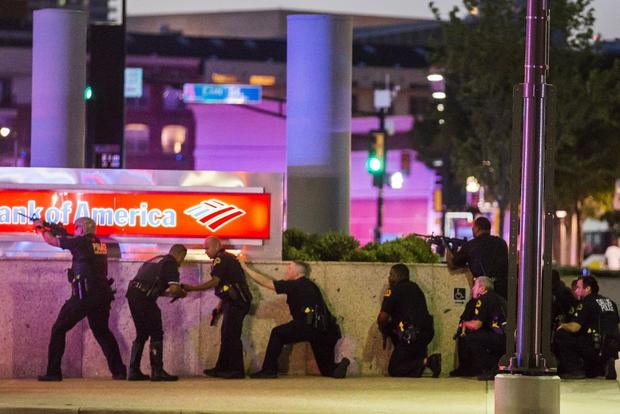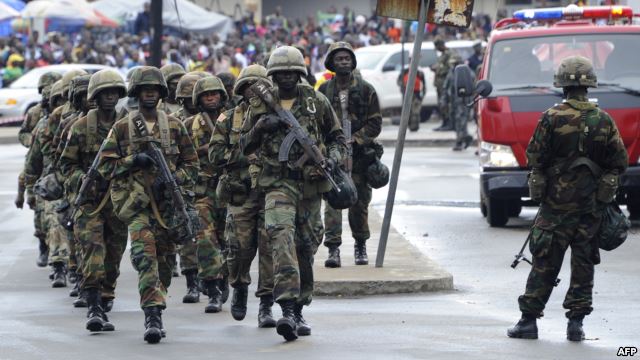Extreme weather is causing huge humanitarian needs, which the world is slow to meet, says Mary Robinson
Governments have been too slow to respond to droughts and floods linked to the El Niño weather pattern, and must do better next time if global development goals are to be met, said Mary Robinson, U.N. special envoy for El Niño and climate.
Last year, U.N. member states agreed on an ambitious set of 17 goals to end poverty, hunger and inequality by 2030, known as the Sustainable Development Goals (SDGs).
In an interview with the Thomson Reuters Foundation, Robinson said the world’s mishandling of El Niño – a warming of Pacific Ocean surface waters – has hurt the most vulnerable communities and threatened progress to meet the SDGs.
“We will do our best to cope with the fact that we are too late with too little – and the international community didn’t pay it any attention for far too long, and we’ve got a big (funding) gap,” the former Irish president said.
She was speaking from the northern Ethiopian region of Tigray, which has been hit hard by drought.
The United Nations says there is a shortfall of $2.5 billion for aid needed this year to help more than 60 million people affected by El Niño in 22 countries across southern and eastern Africa, Central America and the Pacific.
“We have to do it differently next time – we cannot have an El Niño aggravated by climate (change) undermine development hugely, drastically,” said Robinson, who is visiting Ethiopia with Irish aid agencies. “We will never achieve the Sustainable Development Goals unless we address this.”
The latest El Niño – the strongest in two decades – ended in May, but its effects will be felt for months to come, with lost harvests causing misery for subsistence farmers.
On Wednesday, Robinson spoke with two pregnant mothers at an emergency nutrition centre in Sadane in Tigray, run by Concern Worldwide. The women had walked for up to two hours to get food.
“Drought has completely devastated their lives – they have never seen anything like it because the whole crop in 2015 failed,” Robinson said.
Nonetheless, Ethiopia has made strides in helping its people withstand weather extremes. For example, the government is providing health outreach workers to tackle malnutrition in communities, she said.
Although some 10.2 million Ethiopians need food aid this year, very few are dying because of this drought, compared with a major famine in the 1980s, Robinson added.
Robinson, who runs her own foundation to safeguard the rights of communities worst hit by climate change, said global warming exacerbates the naturally occurring El Niño – because warmer seas can increase its intensity and persistent climate-linked disasters are wearing down people’s ability to cope.
“This is not fair,” she said. “It is so much worse because of climate change – which is a rich countries’ responsibility, and it is hitting the poor countries so hard now.”
The U.N. special envoy, appointed to the role in May alongside Macharia Kamau, Kenya’s ambassador to the United Nations, will travel in the coming weeks to Honduras, Mozambique and Vietnam to highlight the damage done by extreme weather.
She noted fears the southern African nation of Mozambique could also be battered by flooding if La Niña – caused by a cooling of Pacific waters, the opposite of El Niño – emerges.
Meteorologists in Japan, Australia and the United States predict a 50 to 75 percent chance of La Niña developing in the second half of 2016. The number of people affected by the combined impact of El Niño and La Niña could exceed 100 million by the end of the year, the United Nations warned this week.
Robinson said much could be done to strengthen communities against weather and climate-related shocks.
In Tigray, she saw women mixing a nutritious cereal blend with vegetables and eggs to feed their children at a grain bank, as well as a programme to manage water resources and restore degraded land.
But with too few efforts like that happening in practice, threats such as El Niño are still causing huge humanitarian needs, which the world is scrambling to meet, she said.
“That is not the right way to approach it,” Robinson said. “We should be approaching it from the point of view of building resilience in communities.”
Source: Reuters



